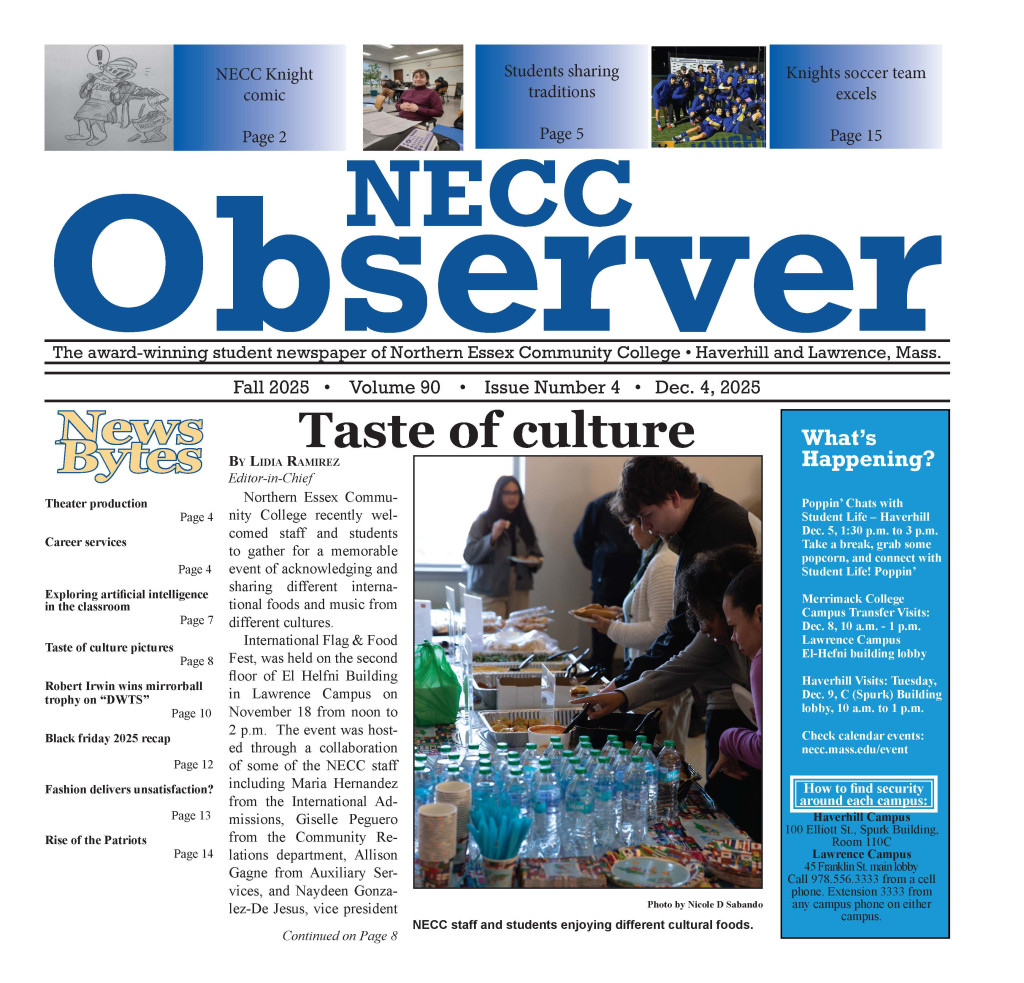Most times when helping people the needs of their pets and the big roles they play in people’s lives are forgotten.
Professor Paula Richards from NECC is making sure these animals and their roles in our lives are not forgotten about by facilitating a pet food and supply drive.
Pets provide comfort and love for many people so it is important to make sure they are able to be properly taken care of.
When asked why the Pet food drive was created this is what she said: “Mid-spring semester I became the faculty advisor for the Community Outreach Group [Student Club] because it has always been my passion to facilitate ways for our NECC students to collaborate with community partner organizations. The Community Outreach Group student club participants explored ways to connect with our communities and make a meaningful difference by addressing a real need. Many of our community college students are parents, not only going to college but also working and caring for their aging parents while also raising their own children,” she said. “When people consider needs in our communities, the important role that pets have in people’s lives is sometimes forgotten. Pets provide solace and comfort, but caring for them can be expensive.”
The Pet drive is taking donations of cat and dog food, toys and other pet supplies. Richards and the Community Outreach Group are working in partnership with the Salisbury Council on Aging and Pawsitive Pantry. “Often for seniors in our communities, their pet might be their only consistent daily companion. This pet food/pet supply drive is especially for them [and their dogs or cats] in partnership with the Salisbury Council on Aging and Pawsitive Pantry,” said Richards.
Pawsitive Pantry is a nonprofit organization providing help for pets whose families are going through hard times. The pet supplies and food will be donated to Joanne’s Food Market, which is the pet supply pantry at the Salisbury Council on Aging’s Senior center.
“It was named after this long-time volunteer and advocate for seniors,” said Richards.
You can find the donation boxes on both the Haverhill and Lawrence campus in these locations from April 10-May 12: Haverhill Campus-NECC library lobby, Spurk lobby, D building lobby, 3rd floor elevator between B+E buildings. Lawrence Campus-Dimitry 1 st floor lobby, Dimitry 2 nd floor outside Dimitry Academic Center and ,El-Hefni Lobby near the Security Desk.
This pet drive not only supports the pets but also the seniors in our community. If you are interested in getting involved and making a difference in your community the NECC Community Outreach Group is a great place to start.
“This week we had our last Community Outreach Group [COG] meeting of the spring semester, but we will start again fresh in fall 2023 semester. The Community Outreach Group is an opportunity for students to make meaningful connections and explore ways to make a real difference in their communities. If NECC students or community organizations are interested in being involved in fall 2023, they can contact me, Prof. Paula Richards by email [prichards@necc.mass.edu]. Additional ways to help pets and their owners can be explored via this Pawsitive Pantry, visit pawsitivepantry.org.

